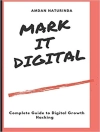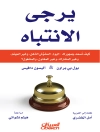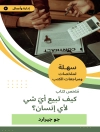This proceedings volume presents a cutting-edge exploration of Islamic marketing, delving into the details of Muslim consumer behavior and Halal business practices, while offering invaluable strategies for navigating the dynamic world of commerce in Islam-oriented regions. Featuring selected chapters from the 14th Global Islamic Marketing Conference, it provides a comprehensive overview of research and insights into Islamic business practices, focusing on innovative marketing strategies. Readers can expect to find detailed analyses and practical guidance on topics such as the impact of neurotransmitters on Islamic research, the influence of religiosity on Muslim consumers’ adoption of cryptocurrency, and how perceived price, quality, and trust affect purchase intentions for Halal products. The volume also explores whether Halal hotels in Malaysia align with green practices, factors driving customer behavior in online banking, and the digitalization of Halal food supply chains through blockchain.
Further chapters investigate customer loyalty in Islamic traditional markets, the factors influencing brand love in Moroccan football, and the impact of sustainability and corporate governance in Bangladeshi microfinance institutions. Discussions include the economic implications of incomes of married women in Islamic contexts and models for the key drivers of Islamic insurance. Readers will also find comparative studies on challenges in online sales contracts within Islamic and Jordanian legal frameworks, and insights into the role of e-trust in the success of virtual organizations through knowledge sharing.
The volume addresses contemporary issues such as consumer empowerment and privacy, the challenges and opportunities for Islamic microfinance during COVID-19, and self-regulating social media behaviors among Muslim consumers. It also explores the integration of AI-driven chatbots in Halal marketing communication and the concept of faith-centric consumerism, offering a research agenda for Halal brand attitudes.
This proceedings volume is an invaluable resource for academics and researchers seeking to deepen their understanding of these specialized topics and for business consultants looking for effective strategies to engage with markets in Islam-oriented regions. It provides both a theoretical framework and practical insights, making it a vital reference for anyone interested in the rapidly evolving fields of Islamic business, marketing, and economics.
İçerik tablosu
Chapter 1: Digital Transformation in Business and in Education.- Chapter 2: The New Normal of Markets.- Chapter 3: Entrepreneurship.- Chapter 4: Entrepreneurial Marketing.- Chapter 5: Islamic Business Curricula.- Chapter 6: Ethics and Crises.- Chapter 7: Post Covid logistics.- Chapter 8: Business Research Trends in the Islamic World.- Chapter 9: Cross Cultural Research.
Yazar hakkında
John Fraedrich, the Jannetides Professor of Business Ethics at Southern Illinois University, received his Bachelor’s Degree in Management from Brigham Young University and his Masters of Science and Ph D in Marketing from Texas A&M University at College Station. His research began with one of the first empirically based business ethics dissertations and was the nexus for the book, “Business Ethics: Ethical Decision Making and Cases” (13th edition) 2022. He has presented, written, and/or published over fifty (50) pieces specifically related to the topic. From a global level Dr. Fraedrich has been on numerous panels concerning values, ethics, and business. Participants have included ambassadors, economic ministers, and Presidents of Fortune 100 firms. Politically he was invited by FEDERASUL, an elite business organization in Brazil, to discuss business ethics and values with one of Brazil’s Supreme Court Justices as well as a former Ambassador. In 2006 Dr. Fraedrich was asked by the Bill Daniels Foundation to become their Bill Daniels Distinguished Professor of Business Ethics at the University of Wyoming, College of Business. There, he developed and implemented a state wide program of ethics integration into business and non-business educational programs. Part of the Bill Daniels $1.2 billion fund is used for ethics awareness within business.
Baker Ahmad Alserhan is a Professor in Business Administration at Princess Sumaya University for Technology in Amman, Jordan. This book is his fourth with Springer, including Strategic Islamic Marketing and three proceedings from the pioneering Global Islamic Marketing Conference. Dr. Alserhan is the founder of the discipline of Islamic Marketing and authored the seminal book in the discipline: The Principles of Islamic Marketing. He is also the President of the International Islamic Marketing Association (IIMA) and Chair of the Annual Global Islamic Marketing Conference (GIMAC) and the Annual Halal Pharma Forum. He founded two academic journals for Emerald (Journal of Islamic Marketing) and ‘Inderscience’ (Journal of Islamic Marketing and Branding), and three in Arabic on the same topic. Dr. Alserhan is a prolific, published researcher of peer-reviewed scientific papers, public speaker, and consultant with research interests in Islamic Marketing and Branding, Islamic Hospitality, Islamic Lifestyles, and Islamic business studies.
Marina Pirtskalava started her career in 1971 at the Scientific Research Institute of Experimental and Clinical Therapy. In 1974 she became a Ph D. Candidate in Biological Sciences; in 1990, she successfully defended her doctoral dissertation and was awarded the “Doctor of Biological Sciences” degree in Kyiv. Since 1994, she has been a real member of the Academy of Preventive Medicine and Human Ecology. She is actively involved in the pedagogical and scientific-research work at the institute. Prof. Marina Pirtskhalava developed some innovative teaching methods. Among them were test-based examinations. Her research interests entail preventive medicine, human ecology, health care management etc. She is the author of more than 120 scientific works and of 4 monographs. Professor Marina Pirtskhalava has often been awarded for her scientific and pedagogical work. She is also involved in international scientific activities and participates in many conferences/symposia.
Tornike Khoshtaria is an associate professor of Marketing at the University Geomedi. He received a Master’s degree in international marketing from Cardiff Metropolitan University School of Management and his Ph D in business administration from Tbilisi State university. His research interests include university branding, web and showrooming, customer purchase intentions, university brand equity, green applications and consumer purchase intention. Prof. Khoshtaria has several scientific publications in impact factor journals. Additionally, he is the author of two textbooks and two monographs.
Hasan Terzi is an Assistant Professor in Marketing at Karabuk University in Turkey. This book is his Third with Springer, including two proceedings from the pioneering Global Islamic Marketing Conference. He worked at Qatar University in 2015-2016 for one year as a researcher under a fellowship program granted by TÜBİTAK (The Scientific and Technological Research Council of Turkey). His studies address postmodernism, consumer culture, and socio-cultural dimensions of consumption, especially the role of religion in consumer behaviour.
Bayirli Mehmet is an Assistant Professor in International Trade and Business Department at Alanya Alaaddin Keykubat University in Turkey. This book is his third with Springer, including two proceedings from the pioneering Global Islamic Marketing Conference. He received his master’s degree in International Trade and Business at Göteborg University, and he obtained his Ph D in Tourism Management at Akdeniz University. His research areas are international marketing, export marketing, brand valuation, and Islamic marketing.












